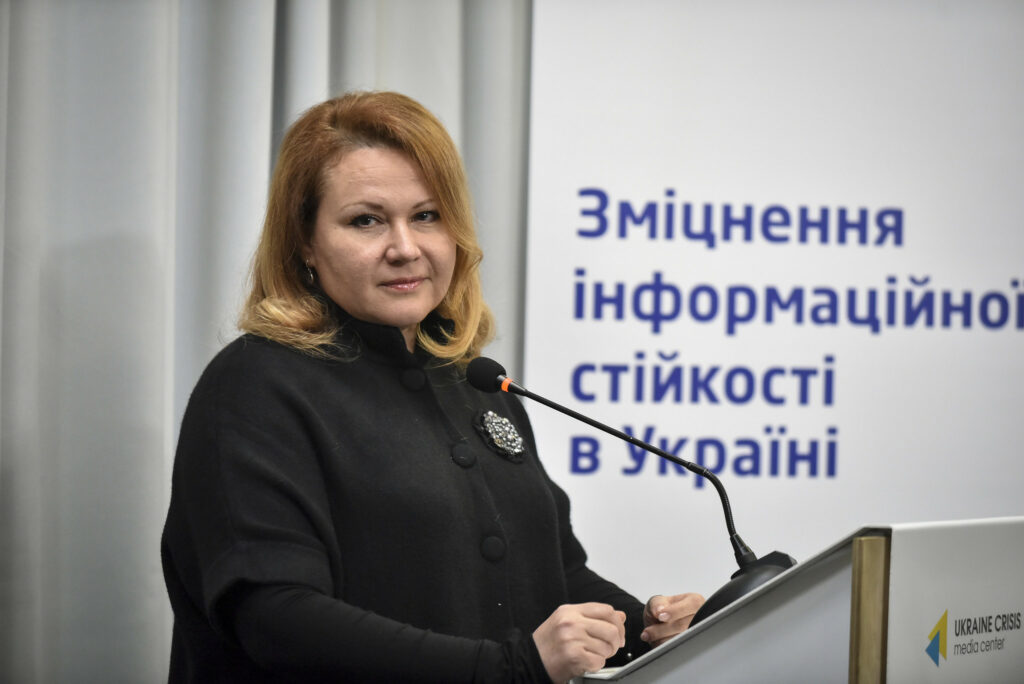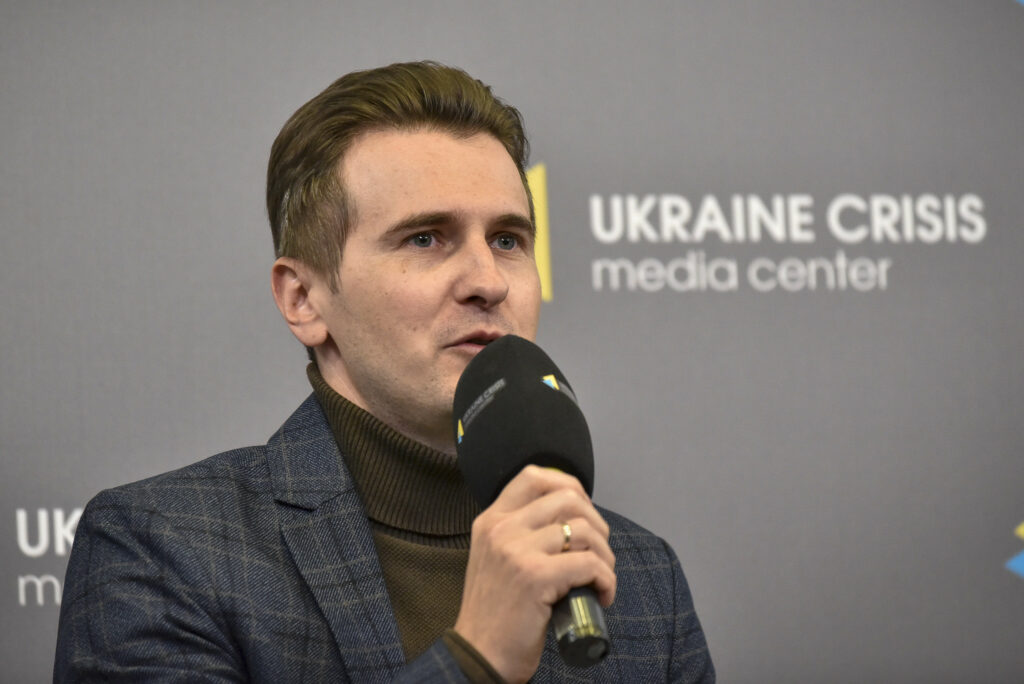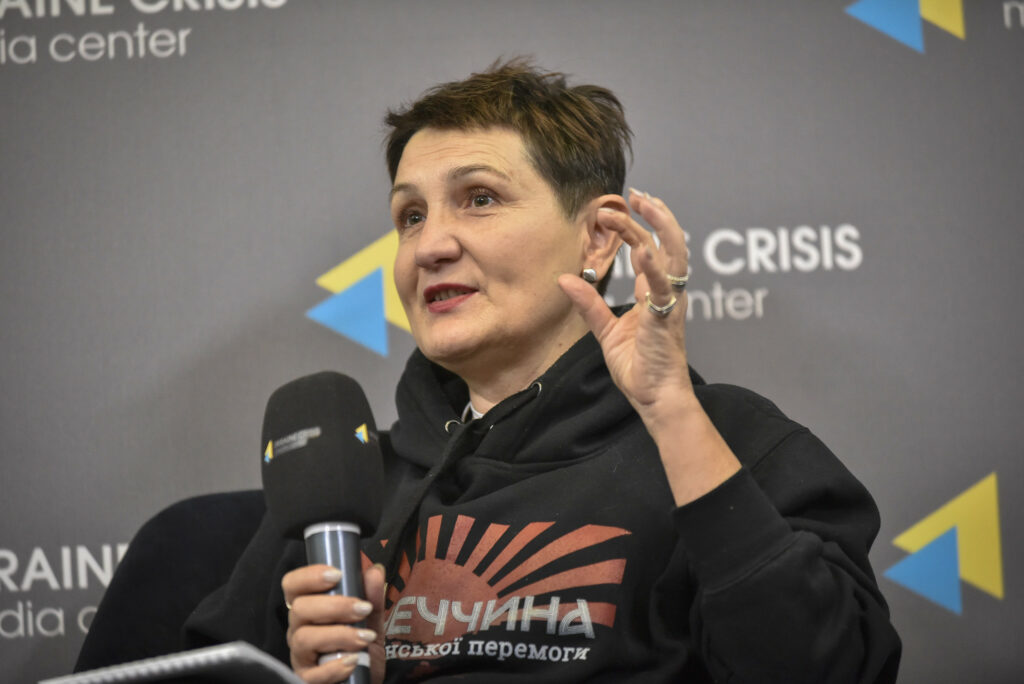Creating myths about allegedly Russian Donetsk, the Russians have been destroying and throwing all inconvenient facts out of history and education for centuries. Unfortunately, on these myths and rewritten history more than one generation of Donetsk residents has grown up who perceived this lie as the truth not of their own free will. To counter this, the Ukraine Crisis Media Center, under the Strengthening Information Resilience in Ukraine project implemented in partnership with the International Practitioners` Partnership Network (Estonia) and with the support of the European Union, continues an information campaign to debunk Russian myths about Ukraine. This time, experts and initiators of a study on how Russia distorts the history of Ukraine using the example of the Donetsk region, gathered in the UCMC press center.
Tetiana Kolosova, the head of the Press Center of the Ukraine Crisis Media Center, informed the audience about the motivation to launch this information campaign.
“For us, first of all, it is not about the very facts that are written in textbooks. It is about the fact that ignorance, manipulation or distortion of them destroys our Ukrainian identity, the ability to resist the external and sometimes internal enemy. The UCMC team is confident that Ukrainians are strong precisely because we mostly acquire, establish, and defend our identity. It is such a conscious, acquired identity, in our opinion, that is most important for following this path, rather than the one that is simply given by default at birth,” she assures.
Many organizations and the state are doing a lot to restore some facts, refute myths, and combat hostile propaganda and narratives. However, in her opinion, all these efforts are disparate, there is no multidisciplinary comprehensive approach applied at the UCMC.
“We turned to people working in libraries and archives, historians, journalists, NGO representatives organizations so that they would answer several questions, but the main thing was about what myths of Russian propaganda currently exist in the territories of the regions designated for research,” Tetiana Kolosova continued, introducing the approach to organizing this work.
In recent months, with the aggravation of the situation at the front, Russian hostile propaganda has only intensified. Journalist of the “Bakhmut.in.ua” Tetiana Semakovska informed that Russian channels continue to claim that the Donetsk region is Russian land and they are returning all settlements rather than occupying them.
“As for the Cossack past, they are trying to distort it. In Bakhmut, the monument to Kondrat Bulavin miraculously survived. At first, the Russians simply tried to appropriate it for themselves. As if he had done everything in the best way for Russia. Now completely different messages have appeared. Just as they did in Mariupol, the occupiers want to completely demolish everything that has survived, including all important historical buildings. They want to completely destroy the city and build it anew so that there are no mentions of the history of Bakhmut and its Cossack past,” said Tetiana Semakovska.
“How should we work with students or, perhaps, with pupils, so that they have something preventive against Moscow’s propaganda?” – with this question, the moderator of the event, Ihor Stambol, addressed Vadym Zadunaysky, professor of the Department of World History of the Modern and Contemporary Times at the Ukrainian Catholic University.
Vadym Zadunaysky advised to start with spreading basic knowledge of the past in Ukrainian society, and first of all among secondary school pupils, because university students have already formed their consciousness.
“I think that the school curriculum should be revised and improved to provide the relevant knowledge. Besides, in the public space, in the public dimensions of historical knowledge, attention should be focused even on Ukrainian myths. Let me remind you that thanks to the Ukrainian Cossack mythology, a powerful national liberation movement was formed in the territories of Eastern Halychyna. More information about our achievements should be spread in school education and in the public space. But at the same time, we should not forget about mistakes and unfortunate defeats. Then we will outplay Russian propaganda, and with counterattacks of our propaganda, defeat the enemy on the ideological front,” he stressed.
Liudmyla Zahaynova, leading consultant of multimedia projects of the Department of Information Activities and Public Communications of the Donetsk Regional Military Administration pointed out another aspect of the work on forming Ukrainian identity.
“The enemy is cunning, insidious, and, unfortunately, effective. We should use the capabilities of our Ukrainian cinema more, to make films like “Dovbush”, “The Konotop Witch”, which won the audience’s sympathy. If we look at Russian cinema, we will see that a whole generation has grown up with the films idealizing their Russian soldiers. Therefore, we must promote our Ukrainian contexts,” she stressed.





